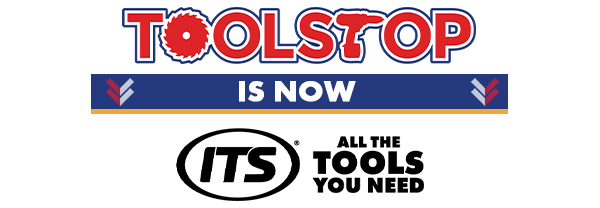Concrete Nailers
Concrete Nailers are specialist tools for fastening hard materials like steel to concrete or masonry. Available in explosive cartridge, gas-fired, and battery-powered models, they deliver unmatched speed and reliability for construction applications.
Who Uses Concrete Nailers?
Concrete Nailers are essential for construction professionals working on large-scale and demanding projects. Their ability to fix materials to tough substrates makes them indispensable in various industries.
- Construction Workers – Widely used for tasks like setting up metal stud walls or fixing steel to concrete foundations.
- Electricians – Ideal for hanging electrical trunking and securing cable conduits to pre-cast concrete.
- Plumbers – Useful for attaching pipe brackets or supports to masonry or concrete surfaces.
- Metalworkers – Perfect for securing structural steel elements in construction projects.
Concrete Nailers Are Great for Jobs Such As:
- Installing Metal Stud Wall Frames – Secure frames to concrete floors or walls with minimal effort and high precision.
- Hanging Electrical Trunking – Fix trunking securely to ceilings or walls made of pre-cast concrete.
- Fastening Steel Plates – Attach steel plates or brackets to masonry or reinforced concrete surfaces.
- Attaching Insulation Panels – Quickly secure rigid insulation boards to concrete or blockwork for thermal efficiency.
- General Construction Fixings – Ideal for any project requiring strong and reliable connections to tough substrates.
How to Choose the Best Concrete Nailer
Selecting the right Concrete Nailer ensures efficiency, safety, and reliability for your construction projects. With various models available, understanding the key features can help you find the perfect tool for your needs.
1. Power Source
Powder-Actuated (PAT): These tools use explosive cartridges to deliver immense force, making them ideal for heavy-duty applications like securing steel to concrete.
Gas-Fired: Powered by gas canisters, these models provide high mobility and are suitable for on-site tasks where speed is essential.
Battery-Powered: The latest innovation, offering gas-free operation and convenience. These are lightweight and excellent for frequent use in diverse environments.
2. Nail Compatibility
Ensure the nailer supports a range of nail sizes (typically 25mm to 100mm) to suit various applications, from light framing to heavy structural fixings. Look for nails designed for specific substrates, such as concrete or masonry.
3. Ergonomics and Weight
For prolonged use, choose a lightweight, ergonomically designed nailer. Features like rubber grips and balanced weight distribution reduce fatigue and enhance control, especially during overhead tasks.
4. Depth Adjustment
A depth adjustment feature allows precise control over nail depth, ensuring a flush or recessed finish depending on the job requirements. This is critical for both aesthetic and structural tasks.
5. Safety Features
Look for safety features like trigger locks and protective shields to minimize the risk of accidental discharge. For PAT models, ensure proper training and use approved cartridges for safe operation.
Essential Accessories for Concrete Nailers
Pairing your Concrete Nailer with the right accessories ensures optimal performance, extended tool life, and safer operation. Here are three must-have accessories to enhance functionality and user experience.
1. Concrete Nails
Concrete nails come in a range of sizes (typically 25mm to 100mm) and are designed for specific substrates like masonry and reinforced concrete. Using high-quality nails tailored to your nailer ensures a secure and lasting fix.
2. Gas Canisters
For gas-powered models, compatible gas canisters are essential for reliable operation. These canisters provide the necessary power for consistent performance, making them a critical accessory for on-site tasks.
3. Protective Gear
Using safety glasses and hearing protection is vital when operating a Concrete Nailer. These tools produce significant force and noise, so the right protective gear ensures user safety and compliance with job site regulations.
Frequently Asked Questions
What is a Concrete Nailer used for?
A Concrete Nailer is used for fastening materials like steel or wood to concrete or masonry substrates. It is commonly employed in construction tasks such as setting metal stud wall frames or attaching electrical trunking to concrete surfaces.
What are the different types of Concrete Nailers?
There are three main types of Concrete Nailers: Powder-Actuated Tools (PAT), gas-fired models, and battery-powered nailers. PAT tools use explosive cartridges for maximum power, gas-fired tools offer portability, and battery-powered nailers provide convenience without the need for gas or cartridges.
What nail sizes are compatible with a Concrete Nailer?
Concrete Nailers typically accommodate nails ranging from 25mm to 100mm. The size needed depends on the materials being fastened and the application. Always check the tool's specifications for compatibility with nail sizes.
Are Concrete Nailers safe to use?
Concrete Nailers are safe when used correctly and with proper safety equipment, such as goggles and hearing protection. Ensure the tool is operated as per the manufacturer’s instructions and avoid using damaged or incompatible nails or cartridges.
Can I use a Concrete Nailer for other materials?
Yes, Concrete Nailers can be used for fastening materials like steel, wood, or brackets to hard surfaces like concrete and masonry. However, they are not suitable for softer materials like drywall or lightweight plywood. Always use nails designed for the specific material and substrate.


